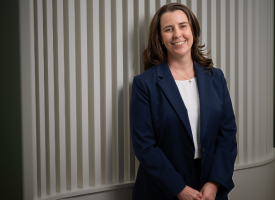Doctors’ Relationships with Industry 2018
1. Introduction
1.1 It is important that doctors (medical practitioners) and industry work collaboratively to improve the quality of, and access to, health care through the development of and access to new and improved therapeutic products, treatments and services. For the purposes of these guidelines, industry refers to commercial entities directly associated with health care such as those involved in the development, manufacture and supply of health care products and those involved in the provision of health care services. This includes (but is not limited to) the pharmaceutical industry, medical device and technology industry, other health care product suppliers, health care facilities, medical services such as pathology, radiology and assisted reproductive technologies and other health services such as pharmacy and physiotherapy (herein ‘industry’).
1.2 While the relationship between doctors and industry benefits patients and the wider public health, individual doctors (and institutions) may benefit financially or otherwise from these relationships. It is essential that doctors manage such relationships appropriately to avoid actual and perceived conflicts of interest which can undermine public confidence and trust in the medical profession.
1.3 Public trust and confidence in the medical profession is essential for ensuring people access medical care. If people do not trust doctors, they may seek care elsewhere, or not seek care at all, either of which may prove detrimental to the health and well-being of individuals as well as the wider public health.
1.4 The overriding principle guiding doctors’ relationships with industry is the primacy of patient care. Patients and the wider community expect doctors to uphold this duty and put patients’ interests above their own personal interests or the interests of industry.
1.5 Doctors’ relationships with industry should:
- reflect core professional values such as transparency, accountability, trust and fairness;
- not compromise, or be perceived to compromise, doctors’ professional judgment and professional integrity;
- be open and transparent, able to withstand public and professional scrutiny, meet public and professional standards and expectations and adhere to relevant legislative and regulatory requirements;
- promote effective stewardship and responsible use of health care resources.
1.6 Professional autonomy and clinical independence is an essential component of high - quality medical care as well as medical professionalism. Doctors must have the freedom to exercise their professional judgement in the care and treatment of patients without undue influence by individuals or outside parties including industry.i
1.7 These guidelines should be read in conjunction with the AMA’s Guidelines for Doctors on Managing Conflicts of Interest in Medicine 2018 which can assist doctors in identifying, disclosing and resolving actual and perceived conflicts of interest in their relationships with industry.
2. Types of relationships with industry
2.1 Relationships between doctors and industry can take many forms. For example, a doctor may:
- be involved in industry-sponsored research involving human participants, including participation in post-marketing surveillance studies;
- enter into contractual arrangements with industry;
- attend meetings sponsored or supported by industry, including scientific, educational and continuing professional development meetings;
- provide services to industry as an employee, consultant, director, speaker, advisory board member or other similar capacity;
- own industry shares or similar options;
- hold intellectual property rights in a medical device or similar product;
- receive product samples, dispense products or meet with industry representatives.
3. Industry marketing and promotion
3.1 While industry is also focused on improving patient care, individual companies have an interest in generating sales to satisfy their duties to their shareholders and keep their businesses profitable.
3.2 Industry has a commercial incentive to market their products in order to increase sales, particularly as research and development of therapeutic products such as medicines and medical devices is expensive.
3.3 Doctors are a major focus of industry marketing for a variety of reasons such as:
- many products require a doctor’s prescription before being purchased by the patient;
- direct-to-consumer advertising of prescription medicines is prohibited in Australia;
- doctors play an important role in influencing institutional purchasing of products (those products purchased by health care facilities and related institutions);
- doctors may influence their colleague s’ opinions of particular products.
3.4 Industry uses a variety of ways to market their products to doctors; for example, by sponsoring professional meetings, holding product launches, providing doctors with product samples and using representatives to meet directly with doctors.
3.5 While doctors have a duty to recommend treatments and procedures based on the health needs of patients, industry marketing can influence behaviour. Doctors need to be aware of this influence and take appropriate steps to minimise it.1
3.6 In addition to marketing directly to doctors, industry promotes their products and services to other entities including governments, health care institutions, the media and the general public in order to generate profits.
3.7 While it is reasonable for industry to promote its products and services within strict regulations, there is concern over aspects of industry marketing that, while lawful, may not be in the health care interests of patients or the general public. An example is the ‘medicalisation’ of normal human processes where a non-medical condition is portrayed by industry as a medical issue that can be ‘treated’ with particular medicines or treatments; therefore, increasing demand for, and sales of, those products and services. Medicalisation of normal human conditions is driven by the commercial interests of industry, not by the health care interests of patients and the wider public. It can result in individuals taking unnecessary medications or undergoing unnecessary procedures as well as increasing overall health care costs.
3.8 Industry marketing and promotion can also lead to patients requesting inappropriate medications and treatments. Doctors should be prepared to discuss such requests, explain why a certain medication or treatment is inappropriate for a particular patient and only recommend therapies that are medically indicated.
4. Medical education
4.1 All doctors should accept the responsibility to be guided principally by patients’ interests and this should be incorporated into any teaching program.
4.2 Medical curricula, including primary, pre-vocational and vocational, should include formal training on:
- identifying and managing real and potential conflicts of interest, including those involving industry;
- recognising the effects that industry marketing and sponsorship has on doctors’ prescribing behaviour;
- independently sourcing and critically appraising evidence; and
- understanding the role of industry in patient care and the healthcare system.
4.3 Medical schools and other educational bodies should be open and transparent about educational sessions provided by industry. It should not be compulsory for medical students to attend any educational sessions or extra-curricular activities organised by industry and those who choose not to attend such events should not be penalised. Caution is advised where medical students or junior doctors are the target audience, in recognition of the effect of exposure to industry biases before developing an independent clinical opinion.
4.4 Continuing professional development should also include relevant information on managing real and potential conflicts of interest arising from relationships with industry.
5. Professional education and training
5.1 Doctors have a responsibility to keep up-to-date with relevant scientific developments including new and existing therapeutic products.
5.2 Doctors use a range of resources to inform themselves about new products and services including the professional literature, authoritative sources of information such as the National Prescribing Service and the opinions of colleagues. Doctors should pay particular attention to information provided by independent, authoritative sources.
5.3 Doctors attending meetings organised by industry should critically evaluate the clinical benefit of attending and the information provided to them.
6. Industry sponsored research involving human participants, post-marketing surveillance studies and marketing research
6.1 Doctors who participate in medical research involving human participants have a duty to protect the life, health, dignity, integrity, right to self-determination, privacy and confidentiality of the individual research participants. The health and well-being of the individual research participant should remain paramount.2
6.2 Doctors should participate in industry-sponsored research only if it has genuine merit, is ethically approved, socially responsible and scientifically valid.
6.3 Clinical trials should be approved by appropriate Human Research Ethics Committees and registered in a publicly accessible register before recruitment of participants is undertaken.
6.4 Adequate provision for funding should be made. Any costs directly related to an industry-sponsored research project should be covered by the research sponsor(s), not defrayed by Government or other insurance agencies. The budget for a research project should be held in a specially designated fund that is made available for audit and scrutiny according to institutional guidelines.
6.5 It is acceptable for doctors in clinical practice to participate in appropriately designed, ethically approved post-marketing surveillance studies, the purpose of which is to monitor the performance of a product under conditions of actual use. Doctors participating in a surveillance study should:
- ensure that their involvement does not compromise, or is not perceived to compromise, clinical independence and professional integrity;
- only enrol patients in a post-marketing surveillance study after an independent, clinical decision to prescribe the particular treatment;
- disclose to relevant patients their participation in a post-marketing surveillance study.
6.6 It is ethically acceptable for doctors to receive remuneration for participation in approved studies when such participation involves a significant amount of professional time and skill over and above that applied directly to patient care. This remuneration should be commensurate with the work involved including the time expenditure, complexity of the study and skill required. It may involve reimbursement of opportunity costs.
6.7 Doctors should only participate in market research activities where the purpose is to collect information to enhance the quality use of a therapeutic product, not to promote a particular company or product or reward a doctor. Any payment for participating in market research should be commensurate with the time involved.
7. Meetings and activities organised independent of industry
7.1 Industry support of professional meetings and activities should be open to public scrutiny.
7.2 Where industry provides financial or other material support for a meeting or activity, it is important to clarify whether the meeting is organised independent of industry or organised by industry.3
7.3 Meetings and activities organised independent of industry should be developed for the purposes of professional education and training, not for the benefit of industry. In this setting, the meeting and activity (herein ‘meetings’) organisers are independent of industry; for example, the medical colleges, associations and societies. ‘Support’ refers to the provision of financial and/or material support for professional meetings and activities.
7.4 Industry may provide financial or other material support for clinical and scientific meetings as well as other similar activities. There is a risk that participants attending an industry-supported meeting may be influenced by (or perceived by others to be influenced by) industry, thus compromising their professional independence. Support should be managed carefully so as not to compromise the participating doctors’ objectivity and capacity to recommend treatments based on patients’ best interests nor undermine the reputation of the medical profession.
7.5 It is acceptable for industry to support meetings that contribute to doctors’ education and continuing professional development (CPD); however, such support should be untied, fully disclosed, at arms-length to the organisation of the meeting and consistent with the following guidance:
- Support by industry should be provided independently of the meeting’s clinical and scientific content;
- Whilst industry may sponsor speakers, an independent organising committee of doctors (and others, as appropriate) should have the decision regarding the:
- organisation;
- content;
- selection of speakers and attendees;
- choice of education activities and materials;
- control of sponsorship funds (including the use of funds to defray other costs).
- Meeting organisers and participants must not be in a position of conflict of interest by virtue of any affiliation with the supporter(s) of those activities. Speakers and presenters must declare any relevant interests, including direct or indirect support to attend a particular meeting. Doctors supported by industry to speak at a meeting should ensure their presentation is scientifically accurate and balanced;
- The program for such activities must declare the support and/or other aid received;
- Support for medical students, doctors-in-training and post-graduate fellows to attend educational events may be appropriate; however, the relevant conference organisers must be responsible for selecting the attendees as well as controlling the sponsorship funds.
7.6 Support for participants who provide a service to a meeting should be indirect, untied and fully disclosed. The following is important:
- Any payments or reimbursements to individual participants should be commensurate with any services provided and made through the meeting organisers and not the supporters;
- It is not appropriate for support to cover the costs of family or friends who may accompany a participant;
- Individuals should not accept any form of support that obliges them to promote a particular product or company;
- It is up to the individual to ensure their presentation is objective, scientifically sound and not biased.
7.7 Doctors whose research is financially supported by industry or who are paid by industry should declare this in any paper, presentation or contribution (eg, at the beginning of a presentation or on a poster or paper).
7.8 Institutions accrediting an educational activity should identify and critically assess the activity to ensure it is free of biases related to industry support; particularly when students or junior doctors are the target audience, in recognition of the effect of exposure to industry bias before developing an independent clinical opinion.
7.9 While a meeting’s general sessions should be organised independently, it may be acceptable for a sponsoring company to organise its own breakout session. Where this occurs, it should be made clear that a breakout session is sponsored by a particular company and should adhere to the guidance below on ‘meetings and activities organised by industry’.
7.10 At some meetings, industry trade displays are on exhibit, often where meeting participants gather for communal purposes (such as where food and beverages are served). Each trade display should clearly bear the name of the sponsoring company and should not use gifts or other offers beyond a nominal value to entice doctors to visit the display.
8. Training organised by industry
8.1 While CPD must be organised independent of industry, in other cases meetings and activities organised by industry may be undertaken for professional education and training. For example, a medical technology company may provide doctors with ‘hands-on’ education and training, supervision and technical support to demonstrate and advise doctors on the proper use of new tools, product or techniques.4
8.2 Where industry organises a training program, the relevant company should take full responsibility for the organisation and promotion of the meeting and ensure it is made clear that the meeting is sponsored and organised by the company.
9. Hospitality and entertainment
9.1 The acceptance of hospitality (the provision of food and beverages) in relation to a professional meeting or educational activity may be appropriate so long as the hospitality is secondary to the purpose of the meeting and not disproportionate in nature.
9.2 Entertainment is the provision by industry of activities with no associated professional education (eg., tickets to a sporting event). Doctors should be aware that entertainment is provided for promotional purposes and this may influence their behaviour.
10. Use of professional status to promote the interests of industry
10.1 Some doctors who are regarded by industry as having particular influence within the professional and wider community may be asked to make public comments supporting a certain therapeutic product or procedure. These individuals are sometimes referred to by industry as ‘key opinion leaders’ and have an extra level of responsibility to ensure their professional status is not used to promote the interests of industry over patients’ interests or to promote products or procedures that are not evidence-based.
11. Remuneration for services
11.1 Doctors who provide a service for industry should ensure that any advice they provide is objective, balanced and evidence-based.
11.2 It is appropriate for doctors who provide a service to industry to receive remuneration for that service. This may include doctors who are industry employees, consultants to industry or serve on an industry advisory board.
11.3 Any remuneration received by a doctor should not exceed that which is commensurate with the work involved.
12. Product samples
12.1 Product samples may be considered to be a marketing exercise by industry to accustom a doctor to prescribe a particular product or to influence a patient’s preference for a particular product. Product samples may, however, be used to serve patients’ interests in certain circumstances. For example, they allow prescribing doctors to evaluate an initial clinical response to a medication and/or permit them to initiate immediate therapy.
12.2 Distribution of samples should not involve any material gain for the doctor or for the practice with which he or she is associated.5
12.3 Product Familiarisation Programs (PFPs) have the aim of allowing a doctor to evaluate and become familiar with a particular product.6 Doctors should be aware of the influence of PFPs and not accept any payment or reward for participating in a PFP.
13. Dispensing and related issues
13.1 Doctors who have a financial interest in dispensing therapeutic products including prescription medicines should be mindful of the possibility of actual or perceived conflicts of interest and take steps to manage them appropriately.7,8
13.2 Doctors should only dispense therapeutic products that are evidence-based.
13.3 Doctors should declare to patients their financial interests in dispensing therapeutic products.
13.4 A doctor involved in the creation or development of a medical device or similar product may hold intellectual property rights in that device and receive royalty payments from its use. In such a situation, the doctor should declare to the patient their financial interest in the device before recommending its use in the patient’s care.
13.5 Doctors should not knowingly invest in industry manufacturing companies that will influence, or be perceived to influence, their professional judgment.
13.6 Doctors should not be affiliated with industry manufacturers if the nature of their affiliation will influence, or be perceived to influence, their professional judgment.
14. Relationships involving industry representatives
14.1 Doctors should not ask for or accept a fee, loan or equivalent consideration from industry in exchange for seeing them in a promotional or similar capacity or for recommending their products or services.
14.2 Doctors should not ask for or accept personal gifts from industry; however, they may accept educational materials appropriate to their areas of practice.
15. Relationships with other medical service and health service providers
15.1 Doctors should not ask for, accept or offer any inducement when entering into a relationship with other medical service providers such as pathology, radiology and assisted reproductive technology or other health service providers such as pharmacy or physiotherapy.
1 Industry associations have their own codes of conduct to guide their members on appropriate interactions with health care professionals. For example, the Medicines Australia Code of Conduct guides pharmaceutical companies while the Medical Technology Association of Australia’s Code of Practice guides medical technology companies.
2 For more information regarding the oversight of ethical regulation of research in Australia, refer to the National Health and Medical Research Council at www.nhmrc.gov.au.
3 Doctors should be aware that the Medicines Australia Code of Conduct requires member companies to publicly report when a company pays a healthcare professional for their service or provides financial support for a healthcare professional to engage in education, including airfares, accommodation and conference registration fees. For more information, refer to https://medicinesaustralia.com.au/code-of-conduct/.
4 For more information, refer to Medical Technology Association of Australia. Code of Practice. 9th edition. 2015
5 For the purposes of these guidelines, ‘material gain’ refers to making a profit over and above ‘recovery costs’ such as the cost of purchasing, storing and disposing of the products.
6 For more information, refer to Medicines Australia. Code of Conduct. 18th edition. 2015.
7 For guidance, refer to AMA Guidelines for Doctors on Managing Conflicts of Interest in Medicine 2018.
8 For additional policy on dispensing by doctors, refer to AMA Ethical Guidelines for Doctors on Addressing Potential Conflicts of Interest in Owning a Pharmacy.
i World Medical Association Declaration of Seoul on Professional Autonomy and Clinical Independence. Adopted by the WMA General Assembly, Seoul, Korea, October 2008. Amended by the 69th WMA General Assembly, Reykjavik, Iceland, October 2018.



